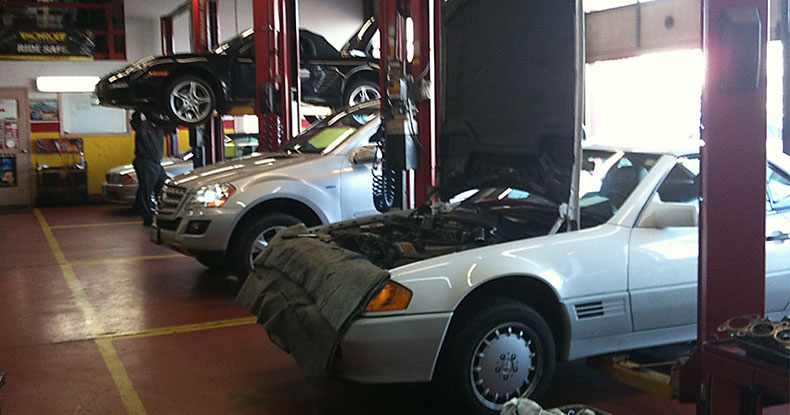So many of the car parts most people pay attention to aren’t directly related to safety – car body style, rims, custom stereos and so on. Your brakes, on the other hand, are a rarely seen but crucial anatomical part of your car.
If your brakes are of poor quality, worn down or haven’t been inspected and maintained regularly, you may wind up finding they don’t work – and that typically means CAR WRECK!
Make sure you’re observing routine maintenance appointments with your preferred mechanic as per your car manufacturer’s instructions. In the meantime, here is some helpful information about brakes and their related parts.
Safety First: Purchase High-Quality Brakes and Replacements From a Licensed Mechanic
First and foremost, never trust the installation and/or replacement of your brake pads and rotors to anyone other than a licensed and competent mechanic. Any error on the part of the brake shop and the safety of your car’s occupants is in jeopardy.
Here are things to keep in mind when purchasing brake replacements.
OEM versus Aftermarket Brakes
Your car originally came with Original Equipment Manufacturer parts. These are referred to as OEM parts. Anything you purchase after that is considered “aftermarket”. OEM brakes are some of the best brakes on the market because they are made using a positive molding process. In this process, the brake “ingredients” or compounds are put into a specific mold. The brake shim is adhered to the back of the mold and then they’re heated to a melting point so the brake’s compounds become completely molded to the shim. This is a more expensive production process.
It’s worth mentioning that some aftermarket brake products can exceed the OEM option. At Peter’s Auto Centre we only use parts that meet or exceed OEM standards.
We avoid cheap brake manufacturers that use a different process in which the brake compounds are molded first and the shim is glued to the finished product, creating a lesser quality brake pad. Make sure you replace your OEM brakes with aftermarket products that are equal to or higher-quality than the brakes your car came with. Your mechanic will help you select wisely.
Brake Inspections
Brakes should be inspected regularly. Are you observing regular tire rotations? Most people don’t. It’s one more thing to add to the list, right? Even if your tires look good, you have all-wheel-drive or your car seems to be driving fine, you should still have your tires inspected/rotated every 5,000 km – 10,000 km. There can be hidden problems you don’t feel or see on the exterior and it also gives your mechanic a chance to check your brakes and rotors.
Brake Replacement

The important thing is that you observe your vehicle’s maintenance schedules. This one simple step will catch and correct the large majority of potential brake issues.
Is your car overdue for a maintenance appointment or tire rotation? Contact Peter’s Auto Centre and schedule your appointment today.
The Centre for All Your Car Needs
Peter’s Auto is the centre for all your car needs with over 20 years of experience in repairing a variety of cars along with up to date mechanics and equipment. Our knowledgeable and helpful staff will take care of all your auto service and repair needs.
Our shop is located in Kitchener, ON. We proudly serve the following areas: Kitchener, Waterloo, Cambridge and Guelph.
Click Here to Schedule an Appointment for your next service or repair today! You can also contact us by phone at (519) 578-4533 or email: info@petersauto.ca


